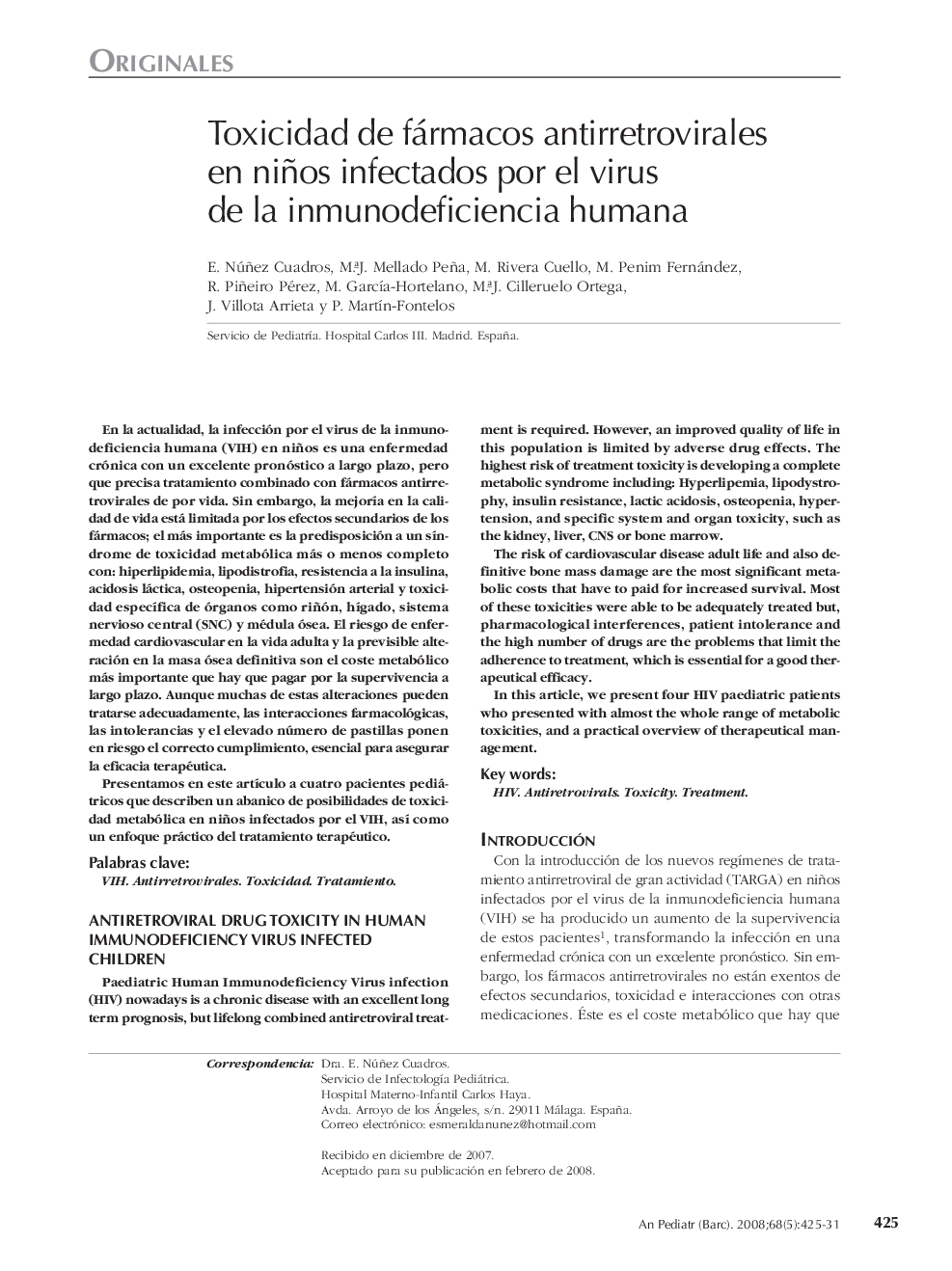| کد مقاله | کد نشریه | سال انتشار | مقاله انگلیسی | نسخه تمام متن |
|---|---|---|---|---|
| 4142758 | 1272386 | 2008 | 7 صفحه PDF | دانلود رایگان |

En la actualidad, la infección por el virus de la inmunodeficiencia humana (VIH) en niños es una enfermedad crónica con un excelente pronóstico a largo plazo, pero que precisa tratamiento combinado con fármacos antirretrovirales de por vida. Sin embargo, la mejoría en la calidad de vida está limitada por los efectos secundarios de los fármacos; el más importante es la predisposición a un síndrome de toxicidad metabólica más o menos completo con: hiperlipidemia, lipodistrofia, resistencia a la insulina, acidosis láctica, osteopenia, hipertensión arterial y toxicidad específica de órganos como riñón, hígado, sistema nervioso central (SNC) y médula ósea. El riesgo de enfermedad cardiovascular en la vida adulta y la previsible alteración en la masa ósea definitiva son el coste metabólico más importante que hay que pagar por la supervivencia a largo plazo. Aunque muchas de estas alteraciones pueden tratarse adecuadamente, las interacciones farmacológicas, las intolerancias y el elevado número de pastillas ponen en riesgo el correcto cumplimiento, esencial para asegurar la eficacia terapéutica.Presentamos en este artículo a cuatro pacientes pediátricos que describen un abanico de posibilidades de toxicidad metabólica en niños infectados por el VIH, así como un enfoque práctico del tratamiento terapéutico.
Paediatric Human Immunodeficiency Virus infection (HIV) nowadays is a chronic disease with an excellent long term prognosis, but lifelong combined antiretroviral treatment is required. However, an improved quality of life in this population is limited by adverse drug effects. The highest risk of treatment toxicity is developing a complete metabolic syndrome including: Hyperlipemia, lipodystrophy, insulin resistance, lactic acidosis, osteopenia, hypertension, and specific system and organ toxicity, such as the kidney, liver, CNS or bone marrow.The risk of cardiovascular disease adult life and also definitive bone mass damage are the most significant metabolic costs that have to paid for increased survival. Most of these toxicities were able to be adequately treated but, pharmacological interferences, patient intolerance and the high number of drugs are the problems that limit the adherence to treatment, which is essential for a good therapeutical efficacy.In this article, we present four HIV paediatric patients who presented with almost the whole range of metabolic toxicities, and a practical overview of therapeutical management
Journal: Anales de Pediatría - Volume 68, Issue 5, May 2008, Pages 425–431